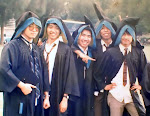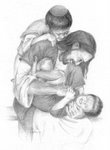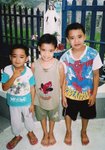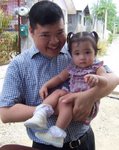19 December 2021
09 December 2021
guidelines for renewal of RPsy & RPm licenses
Re: Guidelines in the Renewal of RPsy & RPm Licenses
Fr: PAP SIG PPPubServ
1. Make sure your annual PAP MEMBERSHIP FEE is updated by
going to www.portal.ap.org/login then to portal.pap.ph/member/payments and clicking
“Old Payment Records”. Updated payment of your membership dues is the main basis
for the release of the renewal requirement of PAP Certificate of Good Standing
(CoGS) which you will submit to PRC on your assigned renewal date.
2. Accumulate 15 CPD (Continuing Professional
Development) Points in the three (3) years prior to your next renewal date (your
birthdate). We recommend attending the Annual PAP Conventions which have sure
CPD points (compared to other webinars without CPD point where you have to
process applying for CPD points yourself with PRC, which may or may not be
granted and if granted, PRC will determine the number of points).
3. Apply for an APPOINTMENT with a PRC Satellite Branch
(e.g., PRC Robinson’s Manila) at least SIX (6) MONTHS prior to expiry of your
license to avoid being late because your Appointment Date will be determined by
the specific PRC Branch depending on the VOLUME of applicants from ALL
professions. To do this, you have to REGISTER to PRC via online.prc.gov.ph/Home
and fill up the “Application for Professional Identification Card (PIC) Form”
where you will be asked to upload a recent (within the last six months) ID
PICTURE with white background, with decent attire with COLLAR (without
eyeglasses, no shadows, & ears not covered). The output will include your APPOINTMENT
DATE (and TIME), VENUE and OR (Official Receipt) number amounting to PHP
450.00.
4. Apply for CoGS from PAP through membership.cogs@pap.ph by filling-out the google form in this link: https://forms.gle/StRxxqHmyjUKoqEP7
where you will upload your scanned or screen
shot PRC APPOINTMENT FORM. Emails are preferably sent to PAP during OFFICE
HOURS from Monday to Friday 8:00 AM to 5:00 PM.
5. PAP promises to email your CoGS at most TWO WEEKS
before your PRC License Renewal Schedule.
6. To follow-up, email PAP at follow-up.request@pap.ph
and indicate if this is your second, third, fourth, or fifth follow-up on this
subject matter.
7. On the day of your PRC Appointment, bring the
following: a hard copy each of your CoGS and PRC Appointment Form, a printed
copy of the PAP email letter containing your CoGS, a photocopy of your CPD
points certificate/s, and an extra copy of your 2x2 picture (following their
online specifications) in case the PRC staff is not satisfied with the one you
uploaded.
8. Be patient and understanding because PAP is processing
so many CoGS but make sure you follow all the above instructions to avoid
further delays.
9. For instructions and announcements pertinent to PAP’s
different services, you are enjoined to read postings on the Psychological
Association of the Philippines, Inc. FB
page and the PAP website at www.pap.ph.
30 September 2021
filipino coping mechanisms (laigo et al., 2004)
Re: Filipino Coping Mechanisms
Fr: Laigo BL, Cura NM, Oreta JS, & Galang GP (2004). Indicators of family wellbeing. Manila: Philippine Women’s University, pp. 18, 21-26, 38-40 (caps mine).
A. Respondents
METHOD | RESPONDENTS | LOCALITY | SEX | AGE | SES | RELIGION |
Focused Group Discussion | 231 Parents | Luzon, Visayas, & Mindanao | 27% male + 72% female | mean = 40.8, range = 17-73 | Mostly economic class C or D, except for the Paraňaque group (class B) | Mostly Christian (including Manobos of Davao, dominated by Catholics), except for Muslim couple & Imam & Aetas of Pampanga |
| 57 Children | Tarlac, Pampanga, Batangas, & Iloilo | 54% male + 46% female |
| ||
Written Survey | 132 Children | Manila, Laguna, Cavite, & Davao | 42% male + 58% female | mean = 14, range = 10-18 | ||
Oral Survey | 1 Muslim Couple + 1 Imam |
|
|
| ||
TOTAL | 423 (234 Adults + 189 Children) |
|
|
|
B. Results
1. 1.Support System
>”… when confronted with financial or other family problems, the family would rely on the relatives or the neighbors for assistance.” (p. 38)
>”For instance, an unwed pregnant woman finds support in her family when they accept the child born out of wedlock as part of the family.” (p. 38)
>”Neighbors become an extension of the family and are expected to provide social support.” (p. 38)
-- Example: neighbors are asked to informally look after the children when not around (“silipin” or to “take a peek”), neighbors immediately report child’s misdemeanour to parents
>Citation: “The Filipino is clannish and expects to be morally, socially, and financially supported in many ways by his immediate as well as extended family. Thus, the family becomes the REFUGE and SHELTER of a person at good and bad times” [Jocano, L. (1998). Filipino social organization, traditional kinship and family organization. Manila: Punlad Research House, p. 63.]
>Related Study: “In the Go study (1995) [Go. S. (1993). The Filipino family in the eighties. Manila: Social Development Research Center, De La Salle University – Manila], urban poor mothers said they usually ask help from a great number of people such as their siblings, friends, relatives, employer, in-laws, co-workers, owners of small-variety stores, and members of the community organizations as part of the INFORMAL SYSTEM. They also seek help from nuns, the police, government authroties (for [pp 38/39] issues concerning demotions), health center, and other FORMAL SYSTMES like, TV show personalities like “Mel and Jay,” “TV Patrol,” and “Kapwa ko Mahal ko”.
“Based on Go’s study, seventy-five percent (75%) of the URBAN POOR mothers stated that they were satisfied with the support system provided by the informal and formal systems, twenty-five percent were not satisfied” (p. 39).
2. 2.Religion and Faith
>…the phrase ‘nasa Diyos and awa, nasa tao ang gawa” (God is merciful, but man must do his part) was a common response used by the parents, giving the impression that resorting to religion and faith is how they cope in times of difficulty or during crisis situations. In fact, PRAYING has often been resorted to whenever they are in trouble. “Magdasal sa Dios pag may problema” (pray to God when there is a problem). Perhaps as a Christian nation, praying is PART OF THE FILIPINO PSYCHE since we have been taught to perceive God as merciful. But this behaviour of turning to prayers and God is more apparent … during times of distress” (p. 39).
3. 3.Humor
>”… the sense of humor of the participants was [pp. 30/40] evident, becoming an INTEGRAL PART of their storytelling, laughing at the problems they shared as wife and mother, and diffusing the seriousness of the discussion.” (pp. 39-40)
>Citation: “Humor as a way of coping has also been observed among Filipinos.” (paraphrased form: The Committee Report: Building a People, Building a Nation: A Moral Recovery Program. In Acuňa, J., Rodriguez, R., & Pilar, N (Eds.). Readings in human behaviour in organization. Quezon City: Diwata Printing.)


















